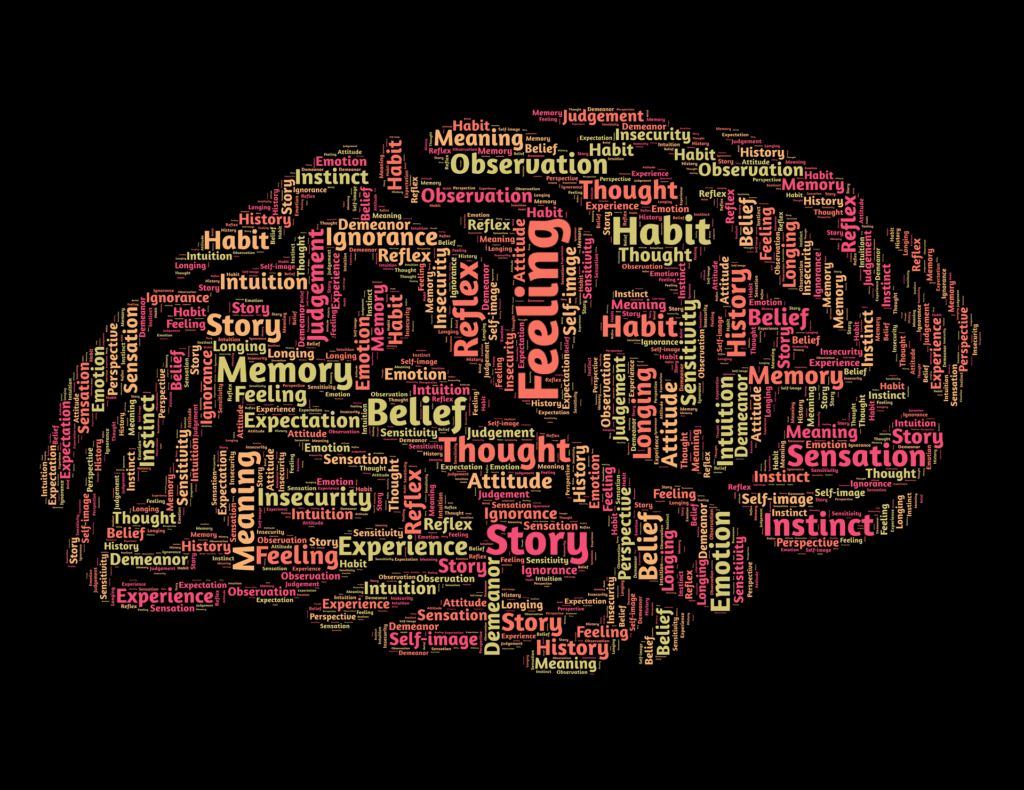
Reading in German will improve naturally improve your level of German, how much you and how quickly will be determined by the technique you use while reading.
Don‘t force yourself to understand everything and think a lot about what you read. Words and patterns that you discover by yourself will be much more useful than any grammar rule. Use translations if needed but do not translate everything. If you are a beginner chose short and easy sentences. Repeat the same story a couple of times because you will understand more of it with every time you reread it.
When studying German you will often get the advice to read simple stories in German, but often times you will not get told how to do it right, so in this article I want to describe my approach to learning German by reading.
Languages Are Simple
I‘m not talking about grammar. Grammar is complex. That makes sense since grammar describes the whole language. For our purposes, it is enough to look at the general structure of a language.
Of course this is very naive and simple way to look at a language but it will be enough for what we want to do. But why do we need to know this?
You will not be able to learn anything if you don‘t notice these general things. So you need to know what you need to watch out for, in order to notice and learn it.
If you will just ignorantly read a story, or even 100 stories, your progress will be very slow.
In languages everything is about verbs and nouns and everything else is just connected to those.
Or if we use some less grammatical way to say this, it is about people or objects and actions.
All the other words are just used to describe them more accurately or to connect them.
Of course there are adjectives, adverbs, prepositions and a lot of other things, but they are only used to describe the nouns and verbs or to connect them.
In some languages there will be changes to the endings of the words to describe time and also to describe certain prepositions, but they still follow this general concept.
While reading a text in a foreign language, you should keep that in mind, and whenever you try to guess the meaning of a unknown word, you should first think about which group this word belongs to.
Most of the times, knowing the nouns and the verbs of a phrase will be enough to understand the general meaning.
Lets look at the following words so i can explain to you what I mean.
to give, cup, father
If you use all these words and connect them together you will be able to form a couple of sentences. But the general meaning will be roughly the same (It can be the father giving you the cup, the cup being given to the father and so on).
Of course this is will be a very short sentence, but we will talk about sentence length later.
You Just Need to Know A Little Bit
You shouldn‘t force yourself to understand everything. Don‘t look up every word. As we saw above, we are still able to roughly guess the meaning even if we only know part of the words that are being used in a sentence.
This being said, if you don‘t understand a part, accept it and continue reading.
Maybe the following sentence will make the situation clearer to you and it will help you understand more about the previous phrase which in turn could help you discover the meaning of some of the unknown words.
In order to learn words and patterns while reading, it is important that you discover the usage of certain constructions and words by yourself.
This will root what you have learned much deeper in you brain, than just memorizing a certain rule or translation.
It’s Wrong to Just Read

Not forcing yourself to know everything most certainly doesn‘t mean that you shouldn‘t think about
it. As i said earlier, it is important to think about what you read and try to figure out as much as possible on your own.
Try to think about the meaning, imagine the situation in your head, and then put the words into our basic groups that i mentioned earlier.
Thinking about what you read will help your brain to make more connections, which then will help you to remember new words better.
When thinking about the situation described in the text, try to make it as detailed as possible. This will also link words to pictures.
Imagining the situation will help you discover things that you have missed out before. Are you reading about an accident on the highway? Did you notice that they mentioned an ambulance in the text?
No? But you will certainly imagine it, as your brain expects it to be there. Wait, wasn‘t there blue light mentioned? Could that be the part where the ambulance is mentioned?
Try to think about stuff that you expected but didn‘t notice while reading through the text. Often you will be able to discover new words or at least make educated guesses about the meanings of words.
Everybody Uses Translations Wrongly
If you are reading Online, use an in line translator. Google offers it‘s own Google Chrome plugin which will enable you to stay on your current website. It will open up a small window which shows you the translation.
If you are using a paperback book, you can just use any translation application or dictionary that you feel the most comfortable with.
Keep in mind that you should not translate whole sentences, instead only translate certain words that you need to know in order to understand the meaning.
If you really need to, you can write down words while you are reading the story, but i would not recommend to do so if it isn‘t absolutely necessary.
We will talk about some techniques which will help you to remember the words.
Don’t Read The Wrong Stories

If you are a beginner then your vocabulary will be limited. Try to not over complicate things. Ideally the stories you are reading should have short and simple sentences.
Also don‘t chose stories that are to long as you will work through one story multiple times (more on that later)
Instead chose stories that are written in authentic German. There is a big difference between written and spoken German, but when you just want to learn German by reading stories, you don‘t have to pay attention to this since the patterns will be the same.
Try to chose stories that repeat certain key words and constructions over and over again. Even though you are reading, repetition is still important.
If you are buying a book, make sure that the stories use these patterns frequently, on Amazon you can read a few pages before you buy the book. Check for patterns like wenn…, dann (if…, then),
ich denke, dass (i think, that) and similar constructions.
When looking at a story or a collection of stories that i consider reading, I will also pay attention to the usage of time. What I want to see is stories written in perfect.
Why perfect? I don‘t really see the need to learn präteritum until you have mastered a significant amount of grammar. In spoken German I use perfect almost exclusively.
The only place where you frequently encounter präteritum is in written texts. If you want to improve your fluency in German then you should really watch out for usage of perfect.
Usually it is not a problem to read texts that heavily use präteritum even if you do not know how it is formed. It is easier to learn it later on once you already know a lot of German, so you should save your time and skip it right now.
Another important factor when choosing stories to read is the level. The stories shouldn‘t be to easy but also not to hard.
Finding the right level depends greatly on how much work you want to put into your reading. Do you just want to enjoy a smooth reading or are you going to work with this book for real?
If you just want to test out your German while deepening your knowledge of what you have already learned, then you should make sure that you understand at least 70% of the text. This will still help you to improve but at the same time doesn‘t require you to put in a lot of work.
If you are ready to put in some work then you should make sure that you only understand between 40% and 60% of the text.
At this level of understanding you will still be able to grasp the general meaning of the phrases, while having enough unknown things to make progress and discover things on your own.
Any Questions?

If you have the chance to, get someone to ask you questions about the text. Ideally this would be a German native speaker. You can also write down the English version of these questions and have someone ask them.
Try to answer every question as detailed as possible. Don‘t just give one word replies. Ideally you would use your own words to answer the question but you can also repeat it the way in which it is written in the text.
If no one can ask you questions, ask them yourself and answer them afterwards. Just make sure that the questions you ask are not to easy.
Asking questions will make you understand the text more deeply and it will also make you think about it even more.
It will help remembering new words while at the same time it will let you repeat some patterns that have been used in the text.
You Are Not Finished after Reading A Story
So you have finished the story and you understood the general meaning of what was writtin in it?
Great work, congratulations. Now start again and read it from the beginning.
Why? Because every time you read that text again you will have reached a higher level of understanding which opens up more of the stories contents to you.
When you read the text for the second time, you will already know what it is about, the moment you read the first sentence. This will allow you to understand words which have been a mystery to you before.
Not only will rereading help you discover new words, it will also let you kind of review the ones you discovered while reading the text for the first time.
The more you read it, the deeper the newly learned or discovered words will be rooted in your brain.
I like to pay attention to different things each time I read a story. When i read it for the first time, I will pay attention to the vocabulary.
After that, when I read the story for the second time, i will pay attention to the patterns of the sentences.
I reread a story at least 4 or 5 times, most of the times even more than that. I m usually not satisfied until i understood at least 90% of what is happening in the story.
Audio

Most of the times you will not have the audio for the story you are reading. If you do have the audio, listen to it after you read the story a couple of times.
There are two ways to listen to the audio. The first is focused on understanding, so you should only try to follow the narrator and try to understand as much as possible.
At this stage you have read the story a couple of times already and you will have a good knowledge about the sentences, used in the story.
Knowing the story well will help you understand the native speaker even if he talks to fast for you, or if you have troubles understanding him and over time, you will slowly develop the ability to understand native speakers.
The second way is about pronunciation. You will listen to the audio, stop it after every sentence, and repeat after the native speaker until you are satisfied.
This can be a long process but you shouldn‘t skip it, since it will teach you to speak German and it will help you to make your brain more familiar with the patterns of German sentences.
It is just another way to get in repetitions.
Copy What You Learned

Once you read the story a couple of times and you listened to the audio a couple of times, you will have a very good understanding of the situation.
Now it‘s time to use what you learned in order to practice it and root it in your brain even more deeply.
We want to speak fluently and in order to achieve that we need to get to a point where we will know the right sentence without thinking about it-
You can now write your own small story about the topic that you just learned about. Be as creative as possible. Use all the words that you know, even if they weren‘t mention in the story.
This will make connections between the new words and patterns, and the things that are already in your head. The more you write, the easier it will get for you to formulate sentences.
In this exercise we are basically practicing to formulate sentences in a „safe“ environment, so that once we need to do it in the real world, it will be much easier for us.
Don‘t skip out this step, it is very important, since a big part of fluency is being able to formulate sentences quickly. This step will help you to get better at exactly that.
Practicing formulating sentences will not help you if no one tells you about the mistakes you made., so after you finished with your story, you will need to find someone to correct you creation.
You can ask for help on the internet. The German Stackexchange or Reddit are good places to find help with this.
Conclusion
There is a lot more to do with a text than to just read it. Of course all these techniques that I use require a lot of time and not every method will work out for you.
Try to test out everything and afterwards chose what you feel comfortable with. You will see great results once you start to read stories and use these methods.
You should however keep in mind that i do not recommend to learn German by using stories only. You need to understand some basic sentences,in oder to understand enough of the story, to not make this a torture.
I hope that this will help you and encourage you to start reading stories in German. If you are interested in it, try to check out my section for German short stories.
It can be a lot of fun to read stories in another language and it will help you to be even more motivated to learn German if you are successful at this.